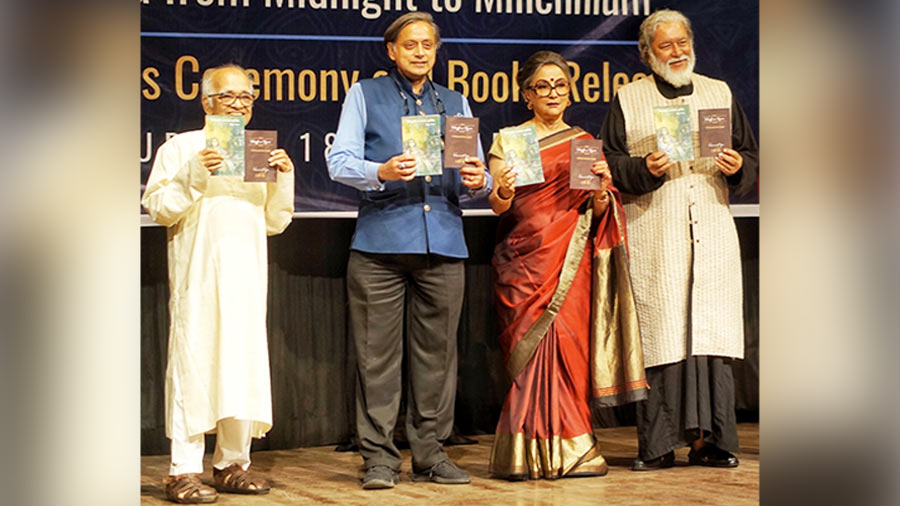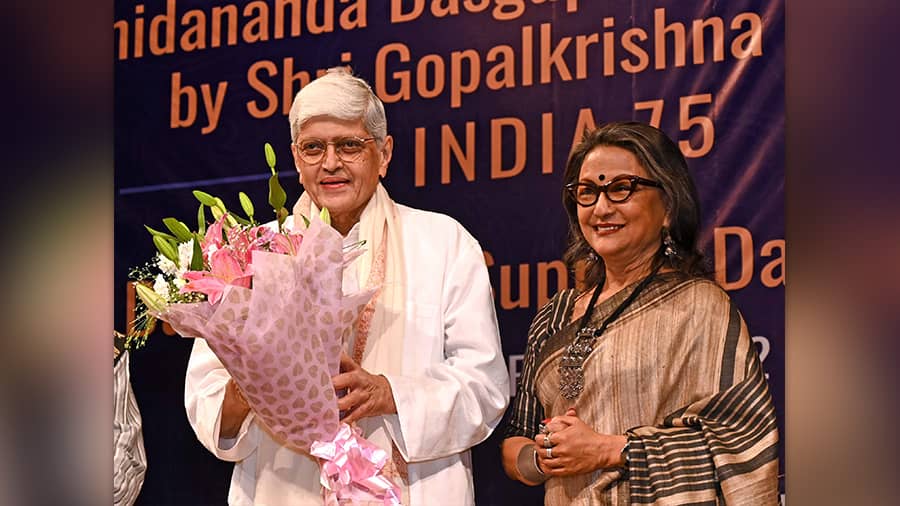Shashi Tharoor, a veteran Congressman, diplomat, public intellectual and long-time Indian parliamentarian, is known as much for his service to the nation as he is for his erudition. Aside from his famed, decades-long career at the United Nations, where he had served as senior adviser to the Secretary-General, Tharoor’s trajectory as an Indian statesman has been one of deep involvement in various facets of the nation-building project. He is also the author of several books, many of which are centred on India and its myriad concerns – geopolitical, religious, social and diplomatic.
It was thus fitting that it was Tharoor who recently spoke at the GD Birla Sabhagar on India’s journey from the midnight of its independence right to its foray into the new millennium. Titled India from Midnight to Millennium, Tharoor’s address constituted the third annual Chidananda Dasgupta Memorial Lecture. Organised by the Chidananda Dasgupta Memorial Trust and Sanskriti Sagar, the lecture was instituted in honour of the maker, critic and historian of films, Chidananda Dasgupta, who made masterpieces such as Amodini (in which his daughter, the veteran actor and director, Aparna Sen, featured), and founded the Calcutta Film Society with Satyajit Ray in 1947.
In keeping with tradition, the event opened with an awards ceremony to recognise outstanding contributions to cinema. While the award for best debut film was not conferred this year, the award for best writing on cinema jointly went to Rochona Majumdar for Art Cinema and India's Forgotten Futures: Film and History in the Postcolony, and Sanjoy Patnaik for Of Reels, Romance and Retakes: Social Narratives of Cinema in Odisha. Happily, accompanying the awards ceremony was the release of two books – one, a compilation of seven poems of Rabindranath Tagore translated by Chidananda Dasgupta, titled Takeoffs on Tagore, and another by the National Award-winning costume designer and Chidananda’s wife, Supriya Dasgupta, titled Dibashundori O Onyanyo Shundorira. Both books were released by Shashi Tharoor.
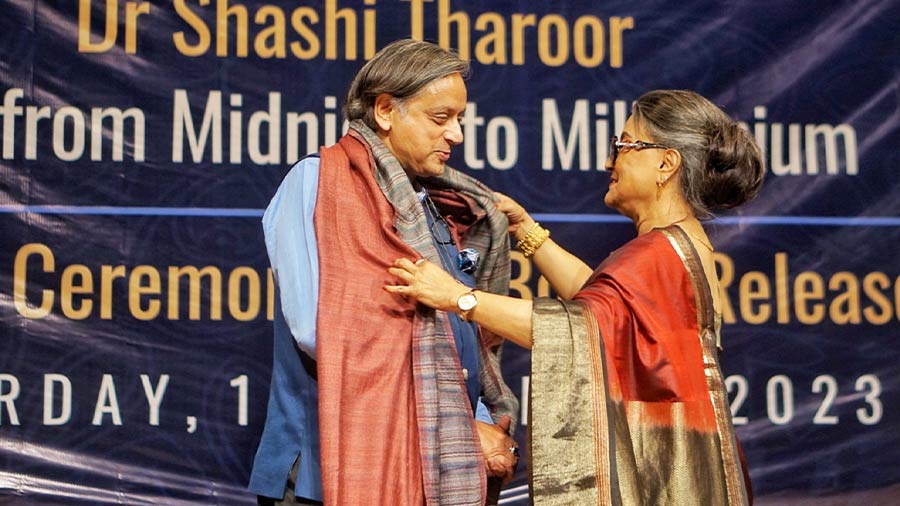
Aparna Sen felicitates Shashi Tharoor
‘India is more than the sum of its contradictions’
At the very outset, Tharoor set the tone for his talk by pointing out how Winston Churchill, known for his objectionable views and actions pertaining to the subcontinent, had once said that India is merely a geographical expression, “no more a single country than the Equator”. “Churchill was rarely right about India,” said Tharoor, “but it is true that no other country in the world embraces the extraordinary mixture of ethnic groups, the profusion of mutually incomprehensible languages, the varieties of topography and climate, the diversity of religions and cultural practices, and the range of levels of economic development that India does.”
“And yet,” he continued, “India is more than the sum of its contradictions. Just thinking about India makes clear the immensity of the challenge of what it means to be Indian. Any truism about India can be immediately contradicted by another truism about India. The country’s national motto, emblazoned on its governmental crest, is Satyamev Jayate – the truth always triumphs. The question remains, however: whose truth? It is a question to which there are at least 1.4 billion answers – if the missing census hasn’t misled us again.”
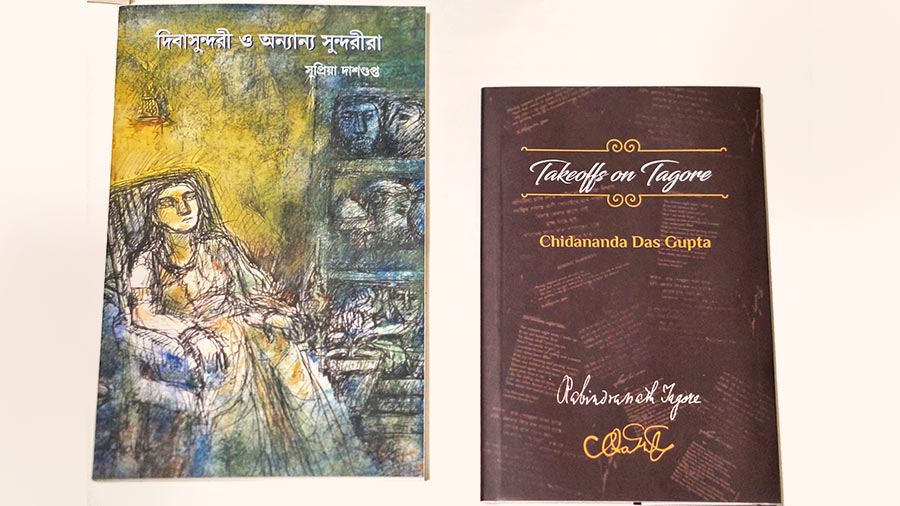
The covers of Chidananda Dasgupta and Supriya Dasgupta’s books, released at GD Birla Sabhagar
With this, Tharoor drove home the fact that India stands at a crucial crossroads at this point in time – the general elections are, after all, slated to be held next year. “When the nation goes to the polls next year, Indians must choose a new India that embodies hope, not one that promotes fear,” he said. Referring to the ‘New India’ that the ruling party at the Centre is touted to be the architect of, Tharoor chose to turn the idea of the phrase on its head. “With India recently having completed 76 years since her independence, the celebrations offer a timely reminder of how far we have come, and how far we have left to go,” he said. “The singular thing about India is that you can only speak of it in the plural. There are, in the hackneyed phrase, many Indias. This pluralism is acknowledged in the way India arranges its own affairs: all groups, faiths, tastes and ideologies survive and contend for their place in the sun. At a time when most developing countries opted for authoritarian models of government to promote nation-building, India chose to be a multiparty democracy. And despite many stresses and strains, including 22 months of autocratic rule during the Emergency in 1975, and during the last 10 years of what the V-Dem Institute calls an ‘electoral autocracy’, India – freewheeling, rambunctious, corrupt and inefficient, perhaps, but nonetheless flourishing – has remained.”
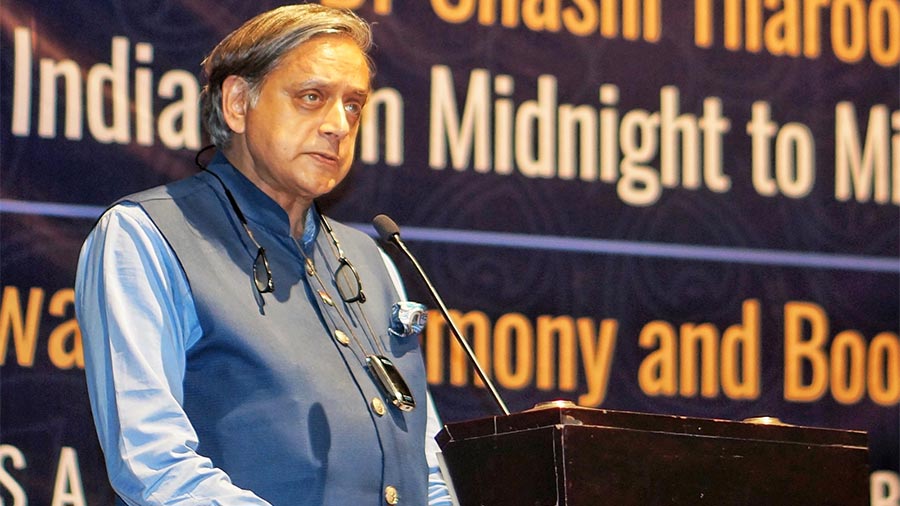
Shashi Tharoor delivers the third Chidananda Dasgupta Memorial Lecture
‘We want unity, they want uniformity’
“The Indian mind has been shaped by remarkably diverse forces: ancient Hindu tradition, myth, and scripture; the impact of Islam and Christianity; and two centuries of British colonial rule,” Tharoor continued. “The result is unique, not just because of the variety of contemporary influences available in India, but because of the diversity of its heritage.” This, then, was the ‘New India’ Tharoor alluded to – “An India where it does not matter what religion you practise, what language you speak, what caste you are born into, what colour your skin is. In our New India, what should matter is that one is Indian.”
This idea of India, he cautioned, is not palatable to all; he warned that it is under siege from those “who seek not just to rule India but to take over its very heart and soul”. “The road to New India appears to be littered with the wreckage of all that was good and noble about the old India,” he said. “We want unity, they want uniformity. We believe in uniting our people, they seek to divide us. What we need is the strengthening of democratic institutions at all levels with transparency and accountability, enforced through the Right to Information Act and other institutions that they have sought to weaken in a bid to promote one-man rule.”
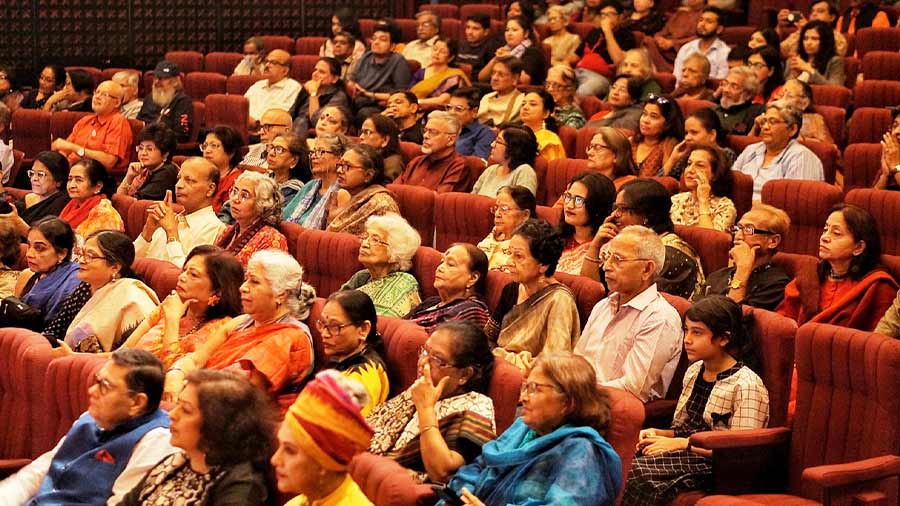
The audience at the event
‘Whom is India shining for?’
“Our India must be one of consultation,” Tharoor asserted, amid applause. “We must never speak of ‘India Shining’ without asking whom India is shining for. Our New India must follow policies that promote higher economic growth and also ensure that the benefits of that growth are enjoyed by the poor and disadvantaged sections of our society. The choice is clear. We can have a new India that belongs to all of us, led by a government who works for all of us. Or we can have a new India that belongs to some and serves the interest of a few.”
“Next year, Indians can choose a new India that embodies hope, or one that promotes fear,” Tharoor warned. “As we enter the 77th year of our independence, there is a struggle taking place for India’s soul. Between these two ideas of India, one is intolerant of differences and suspicious of diversity. The other is broader and inclusive. It accepts differences and embraces diversity. Which idea prevails will determine the character of the India that will celebrate its centenary a quarter of a century from now on.”
